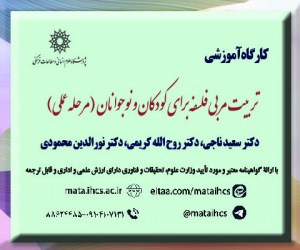درنگی در کارکرد نهاد داوری در قراردادهای پیمانکاری با تحلیل رویه قضائی (مقاله علمی وزارت علوم)
درجه علمی: نشریه علمی (وزارت علوم)
آرشیو
چکیده
در حال حاضر، دولت ها به منظور ایجاد بسترهای مناسب و اجرای زیرساخت های عمرانی، از قراردادهای پیمانکاری با شرکت های داخلی و خارجی استفاده می کنند. اما این قراردادها در برخی موارد با مشکلاتی مانند تفسیر و نحوه اجرا همانند سایر قراردادهای تجاری مواجه می شوند.از طرف دیگر، ماهیّت قراردادهای پیمانکاری موجب می شود که اختلاف به سرعت و چه بسا در محل اجرای پروژه، حلّ و فصل شود. روش های حلّ و فصل اختلافات با توجه به رویکرد غیر قضائی آن می تواند نسبت به حلّ سریع وکاهش هزینه ها در رسیدگی مؤثّر باشد. از جمله این روش ها، رجوع به داوری است. قانونگذار ایرانی در ماده 53 شرایط عمومی پیمان، شورای عالی فنّی سازمان برنامه و بودجه را به عنوان مرجع داوری حلّ و فصل اختلافات تعیین نموده، اما از آنجایی که محدوده ماده 53 مذکوردر قلمرو اصل 139 قانون اساسی و ماده 457 آئین دادرسی مدنی بوده و از طرف دیگر، به دلیل عدم دامنه مشخّص در خصوص اموال دولتی و عمومی، این مسأله، مورد بحث و اختلاف نظر می باشد. هدف از نگارش این مقاله ضمن بررسی نمودن حلّ اختلافات توسّط داوری، تبیین ماهیّت و نحوه اجرای تصمیمات نهاد داوری در قراردادهای پیمانکاری نیز می باشد. در این پژوهش با روشی توصیفی - تحلیلی سعی می شود به نقد و بررسی ظرفیّت های حقوقی نهاد داوری شورای عالی فنّی سازمان برنامه و بودجه، و همچنین دلایل ناکارامدی و بروز اختلافات در پروژه های عمرانی پرداخته شده و شرایط و روش های حلّ و فصل اختلافات در فیدیک را بیان می دارد. علاوه بر این، دامنه پذیرش رسیدگی به اختلافات قراردادهای عمرانی به معنای خاص خود که شرایط عمومی پیمان را منضمّ به خود دارند و نحوه پذیرش و اجرای آرای صادره از سوی نهاد داوری سازمان برنامه و بودجه مورد بررسی و تحلیل قرار می گیرد. راه حلّ اساسی و مهمّ آن است که هیأت وزیران به موجب مصوّبه ای، مجوّز موضوع اصل 139 و ماده 457 آیین دادرسی مدنی را صادر نموده و اجازه دهد دعاوی ناشی از قراردادهای پیمانکاری، به مراکز داوری معتبر و مستقلّ مانند مرکز داوری اتاق بازرگانی ایران ارجاع شده و ماده 53 شرایط عمومی پیمان اصلاح گردد.A Review of the Function of Arbitration Institution in Construction Contracts Based on Judicial Practice
In order to create appropriate platforms and implement infrastructure projects, governments currently use contracting contracts with domestic and foreign companies. However, these contracts in some cases face problems such as interpretation and implementation methods similar to other commercial contracts. On the other hand, the nature of contracting contracts requires that disputes be resolved quickly and possibly at the project site. Dispute resolution methods, given their non-judicial approach, can be effective in resolving quickly and reducing litigation costs. One of these methods is resorting to arbitration. The Iranian legislator in Article 53 of the General Conditions of the Contract has determined the Supreme Technical Council of the Planning and Budget Organization as the arbitration body for resolving disputes. However, since the scope of the mentioned Article 53 is within the scope of Article 139 of the Constitution and Article 457 of the Civil Procedure Code, and on the other hand, due to the lack of a specific scope regarding government and public properties, this issue is a matter of debate and disagreement. The purpose of this article is to review the settlement of disputes by arbitration, as well as to explain the nature and implementation of the decisions of the arbitration institution in contracting contracts. In this research, with a descriptive-analytical method, an attempt is made to criticize and analyze the legal capacities of the arbitration institution of the Supreme Technical Council of the Planning and Budget Organization, and also the reasons for inefficiency and the occurrence of disputes in projects are discussed and the conditions and methods of dispute resolution in FIDIC are stated. In addition, the scope of acceptance of to disputes of contracts in the specific sense that have the general conditions of the contract attached to them and the method of accepting and enforcing the awards issued by the arbitration institution of the Planning and Budget Organization are reviewed and analyzed.



